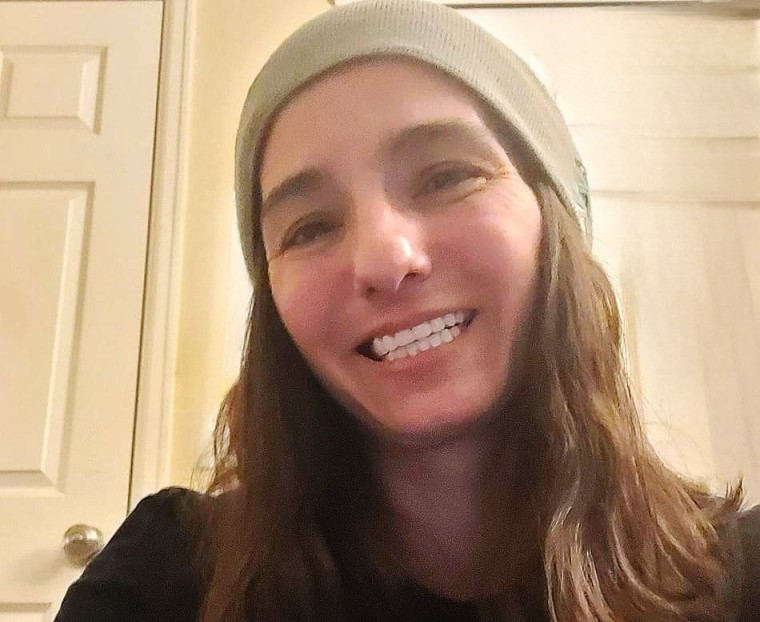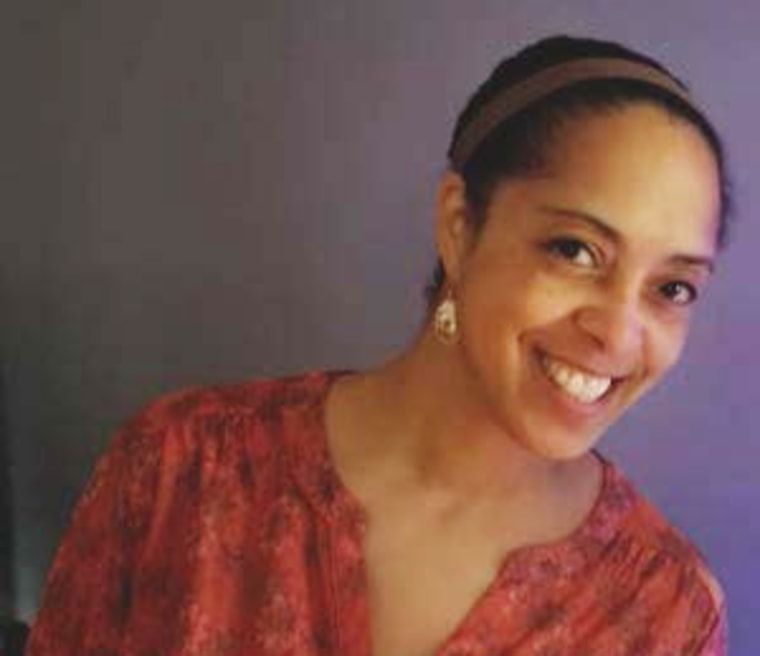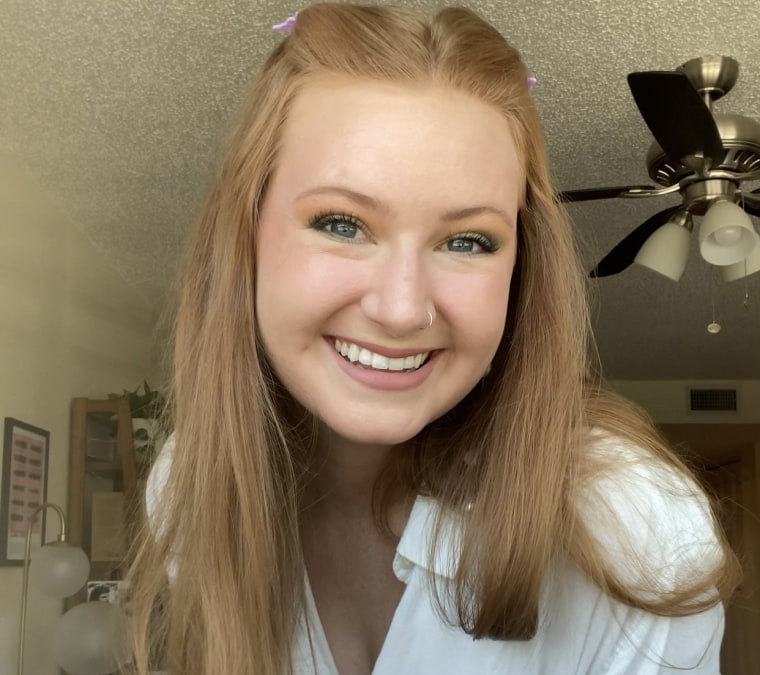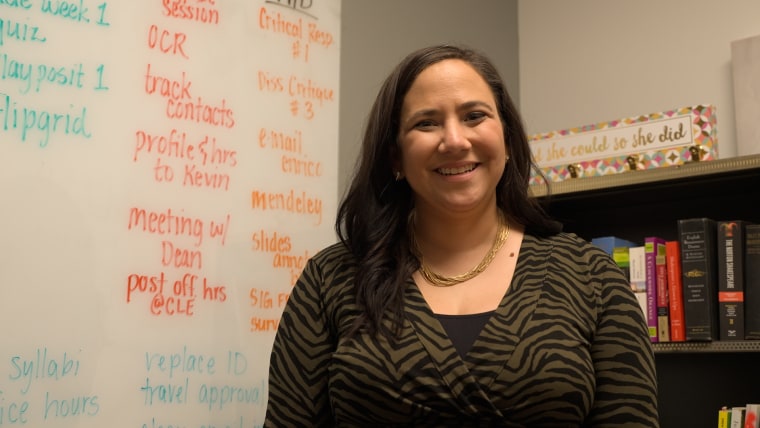Symptoms start in childhood, but often missed
A growing number of adult women in the United States have been diagnosed with and are seeking treatment for ADHD, a development experts attribute to a long history of psychologists, parents and teachers overlooking symptoms in young girls.
The national shortage of Adderall, a drug that treats attention-deficit/hyperactivity disorder, or ADHD, is also spotlighting a spike in demand for medications that treat the developmental disorder, especially among women.
The gender disparity is clear on TikTok, where videos list “signs you might have ADHD” or women showing their messy rooms and sharing how they forget to do things, showcasing what it’s like to live with the condition.
The hashtag #ADHD has over 18 billion views, and “#ADHDinwomen” has over 2.3 billion views. The one for men — “#ADHDinmen” — has just 8.3 million views.
Many in the TikTok videos are careful to say they’re not doctors. But the messages are undoubtedly connecting with women.
For years, Melanie Kitto, a bread route distributor from Brighton, Colorado, thought about starting her own business but couldn’t muster up the confidence. There were too many responsibilities involved — too many phone calls to make, appointments to keep and receipts to file.
“I didn’t think I could keep on top of everything all the time,” said Kitto, 41. “I mean, I lose my keys every day.”

Things changed this past spring when Kitto received a formal diagnosis of ADHD from a nurse practitioner.
“When I got diagnosed and started meds, I finally felt like I could do this,” Kitto said. “I believed in myself enough to run my own business.”
What is ADHD?
ADHD is a complex neurodevelopmental disorder that begins in childhood. Delayed diagnoses for adults, however, have been on the rise for years, experts say. In one analysis, the rate of adult ADHD diagnoses more than doubled from 2007 to 2016, according to 2019 Kaiser Permanente research on more than 5 million adults in Northern California.
There’s a witticism, ‘ADHD in young boys shows up in the classroom, but ADHD in young girls shows up on the playground.’
J. Russell Ramsay, UNIVERSITY OF PENNSYLVANIA
Even in other research on ADHD diagnoses in adults, there isn’t clear data on the breakdown by gender. But support groups and doctors report more women seeking help.
“There’s been an increase in women diagnosed with ADHD over the last several years because of an increasing recognition that it’s not just the disruptive, impulsive behavior of boys that leads to a diagnosis,” said Dr. David Goodman, a psychiatrist and an assistant professor at the Johns Hopkins University School of Medicine.

Membership with the Attention Deficit Disorder Association, or ADDA, a nonprofit education and support organization for adults with ADHD, more than doubled from 2019 to 2021, said board member Jolanda Kieda, an ADHD coach.
Kieda — herself diagnosed at 49 — suspects some 70{a0ae49ae04129c4068d784f4a35ae39a7b56de88307d03cceed9a41caec42547} of ADDA’s members and 80{a0ae49ae04129c4068d784f4a35ae39a7b56de88307d03cceed9a41caec42547} of her own coaching clients identify as female.
ADHD symptoms can vary widely, but young girls with the disorder tend to be more inattentive and distracted than hyperactive and impulsive. Research from the Centers for Disease Control and Prevention shows that boys ages 3 to 7 are more than twice as likely to be diagnosed with ADHD than girls.
That’s because teachers and parents are more likely to recognize classroom behaviors and refer young boys for testing, said J. Russell Ramsay, director of the Adult ADHD Treatment and Research Program and a professor of clinical psychology in psychiatry at the University of Pennsylvania.
“There’s a witticism, ‘ADHD in young boys shows up in the classroom, but ADHD in young girls shows up on the playground,’” Ramsay said.
Dr. Ned Hallowell, a psychiatrist specializing in ADHD, said girls with undiagnosed ADHD are “the quiet dreamers who sit in the back of the classroom lost in their thoughts.”
“Their brains are very busy, but they’re not showing it with disruptive behavior the way boys can,” said Hallowell, founder of The Hallowell ADHD Centers, which provides diagnosis, treatment and support groups at five locations across the country.
A 2006 study in the American Journal of Psychiatry found that the ratio of adult men diagnosed with ADHD to adult women diagnosed with ADHD was about 1.6 to 1. According to experts, the breakdown has increasingly become more balanced.
“More women are presenting as adults relative to men, and more women are being diagnosed as adults relative to childhood,” said Dr. Lenard Adler, director of the Adult ADHD Program at NYU Langone. “We certainly see that in our program.”
Covid’s impact on ADHD diagnoses and meds
According to the health data company Trilliant Health, Adderall prescriptions for 22- to 44-year-olds rose 15.1{a0ae49ae04129c4068d784f4a35ae39a7b56de88307d03cceed9a41caec42547} from 2020 to 2021, double the 7.4{a0ae49ae04129c4068d784f4a35ae39a7b56de88307d03cceed9a41caec42547} rise seen from 2019 to 2020. This same growth wasn’t seen for children or teens.
Covid lockdowns meant many parents began caring for kids at home, while at the same time trying to keep their jobs, adapt to remote work and protect themselves from Covid.
Big life changes can lead women to recognize overlooked or misdiagnosed symptoms, said Stephen Faraone, a research psychologist at SUNY Upstate Medical University, who studies ADHD and its genetic underpinnings.
“The demand to regulate thoughts, behaviors and emotions increases around these changes,” Faraone said.
Women, of course, weren’t the only ones facing intense change. But psychotherapist and ADHD coach Terry Matlen said those with undiagnosed ADHD were among those hit hardest.
“A lot of women reaching out lately are falling apart and shutting down,” she said.
Matlen, who runs a 36,500-member Facebook support group for women with ADHD, said the number of women reaching out to her for help has doubled since the pandemic started.
It will take time for public health researchers to gather, analyze and publish post-pandemic data, but the CDC reported a 344 percent increase in privately insured adult women who filled an ADHD medication prescription from 2003 to 2015.
Abby White, a 26-year-old from St. Petersburg, Florida, was diagnosed with ADHD in June. She spent most of her adult life convinced her intense mood swings were hormonal. Because White always pulled off good grades, her parents and teachers didn’t suspect she might have ADHD.

About a year and a half ago, White’s doctor referred her to a clinical psychologist, who gave her a series of tests and in-depth evaluations over the course of three hours before diagnosing her with ADHD.
Psychologists and clinical social workers, among other professionals, can diagnose people with ADHD and provide counseling and behavior-based therapy, but only psychiatrists and medical doctors can issue prescriptions.
White is still waiting for an appointment with a psychiatrist. In the meantime, she received a prescription for the nonstimulant drug Strattera through a membership-based telehealth company last month.
Telehealth and access to ADHD treatment
The proliferation of telehealth services during the pandemic, especially for mental health care, has played a big role in more women being prescribed ADHD medications, experts say.
ADHD stimulant medications such as Adderall are controlled substances regulated by the federal Drug Enforcement Administration. Since March 2020, the DEA has allowed doctors to prescribe controlled substances to patients they’ve never evaluated in person, a move that is scheduled to continue as long as Covid is considered a public health emergency.
“The positive to telehealth is that it has tremendously increased access to care,” said Goodman, the psychiatrist from Johns Hopkins “Not only is it convenient, but it’s relatively inexpensive.”
Telehealth services can offer comprehensive treatment over video calls, while others might involve short, impersonal surveys and chat boxes. However, with some telehealth companies, getting meds is “a little too easy,” Goodman said.
“The downside to telehealth, when it comes to ADHD, is that many companies aren’t doing comprehensive psychiatric evaluations,” he said. “I would be very reluctant to prescribe medication to someone if I hadn’t done a comprehensive review.”
Is it really ADHD?
Others worry that doctors working through telehealth companies may not have the training to identify misuse.
“If I have a 21-year-old college student coming in for a first-time ADHD diagnosis and that person doesn’t have a clear history of childhood difficulties, is it possible they’re faking the diagnosis to get the prescription stimulant?” asked Dr. Margaret Sibley, a clinical psychologist and researcher at the University of Washington and Seattle Children’s Hospital.
Beyond screening tests and behavioral interviews, formal diagnosis requires a comprehensive medical history to rule out other conditions, NYU Langone’s Adler said. It might also involve interviewing family members.
Sibley is also concerned that some women who relate to symptoms discussed on social media and decide they, too, have ADHD could be “barking up the wrong tree.”
“It’s really an opportunity cost danger,” she said. “It could be they had an undiagnosed thyroid issue, and there could be other ways of medically addressing their symptoms that would be a better fit than a stimulant medication.”
Goodman warned about the potential for abusing the medications. “You can develop an addiction to them, whether it’s psychological or physiologic,” he said.
The drugs can cause weight loss and have been linked to higher risks of strokes, high blood pressure and other heart problems. These dangers are greater for people with existing heart conditions.
Ultimately, ADHD experts are encouraged by adult women seeking treatment, in part because untreated ADHD can carry its own serious risks, including substance abuse, car accidents, eating disorders or divorce. In 2018, a study in the Journal of Attention Disorders found untreated ADHD could slash 13 years off of life expectancy, though diagnosis and treatment could reverse that danger.
Kitto credits the ADHD diagnosis for helping her move forward with her life.
“When I first took the meds for ADHD, I was like, ‘Holy cow, this is what people feel like?’” she said. “I never felt like a normal person before.”

